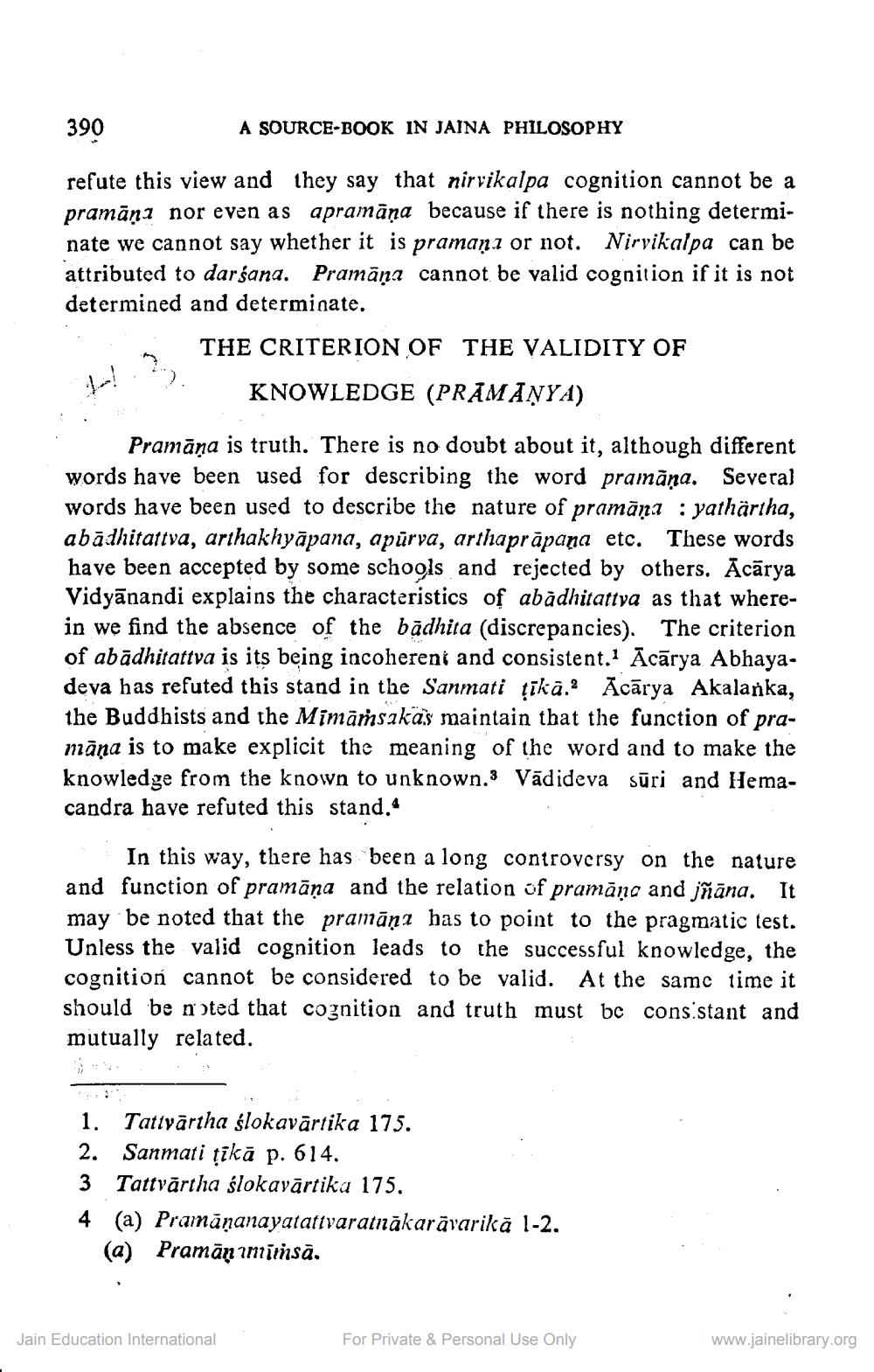________________
390
refute this view and they say that nirvikalpa cognition cannot be a pramāņa nor even as apramāṇa because if there is nothing determinate we cannot say whether it is pramana or not. Nirvikalpa can be attributed to darśana. Pramāņa cannot be valid cognition if it is not determined and determinate.
d
A SOURCE-BOOK IN JAINA PHILOSOPHY
THE CRITERION OF THE VALIDITY OF
KNOWLEDGE (PRĀMĀŅYA)
Pramāņa is truth. There is no doubt about it, although different words have been used for describing the word pramāņa. Several words have been used to describe the nature of pramāṇa yathärtha, abadhitattva, arthakhyāpana, apūrva, arthaprāpaṇa etc. These words have been accepted by some schools and rejected by others. Acārya Vidyanandi explains the characteristics of abadhitattva as that wherein we find the absence of the badhita (discrepancies). The criterion of abadhitattva is its being incoherent and consistent.1 Acarya Abhayadeva has refuted this stand in the Sanmati tīka.2 Acarya Akalanka, the Buddhists and the Mimamsakas maintain that the function of pramāņa is to make explicit the meaning of the word and to make the knowledge from the known to unknown. Vadideva sūri and Hemacandra have refuted this stand."
In this way, there has been a long controversy on the nature and function of pramāņa and the relation of pramāna and jñāna. It may be noted that the pramāņa has to point to the pragmatic test. Unless the valid cognition leads to the successful knowledge, the cognition cannot be considered to be valid. At the same time it should be noted that cognition and truth must be consistant and mutually related.
1. Tattvärtha ślokavārtika 175.
2. Sanmati tīkā p. 614.
3 Tattvärtha slokavārtika 175.
4 (a) Pramāṇanayatattvaratnākarāvarikā 1-2.
(a) Pramāṇīmīṁsā.
Jain Education International
For Private & Personal Use Only
www.jainelibrary.org




